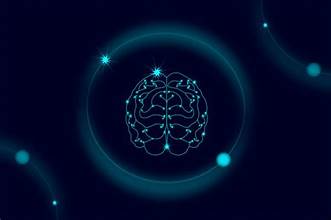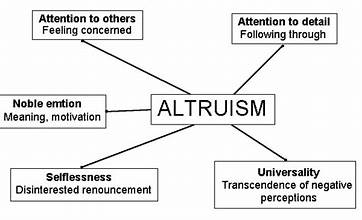Altruism, the selfless concern for the well-being of others, holds a prominent place in the realm of psychology. Rooted in empathy and compassion, altruistic behaviors have been studied extensively, revealing their profound impact on mental well-being. Research suggests that acts of kindness trigger the release of neurotransmitters like oxytocin, promoting positive emotions and reducing stress. Altruism also fosters a sense of connection and belonging, enhancing overall psychological resilience.
Psychologists argue that altruistic tendencies are deeply ingrained in human nature, challenging the traditional notion of purely self-interested behavior. The reciprocity and social benefits of altruism contribute to the formation of strong social bonds, creating a supportive community. Understanding and promoting altruistic behaviors not only enrich individual lives but also cultivate a more compassionate and harmonious society, showcasing the transformative power of selflessness in the intricate tapestry of human psychology.
Altruism in Biology
Altruism, the seemingly self-sacrificing behavior observed in various species, unveils a fascinating biological phenomenon that challenges conventional notions of survival of the fittest. In the intricate dance of life, organisms often display altruistic acts that benefit others at a potential cost to themselves.
From ants tending to wounded comrades to bees defending their hive, altruism in the biological realm serves a crucial purpose. The underlying principle lies in the preservation of shared genetic material among close relatives, known as kin selection. In doing so, these altruistic behaviors enhance the overall survival and reproductive success of the group, contributing to the continuation of shared genetic traits.
Biological altruism sheds light on the interconnectedness of living organisms and the adaptive strategies that extend beyond individual survival. Understanding the role of altruism in biology unveils the cooperative symphony that orchestrates the delicate balance of life, emphasizing that in nature, sometimes the greatest strength lies in selfless collaboration.

The Ethical Elegance of Altruism
Altruism, the ethical cornerstone of selfless concern for others, transcends mere benevolence and forms the bedrock of a compassionate society. At its core, ethical altruism challenges individuals to prioritize the well-being of others, fostering empathy and social cohesion. This ethical paradigm rejects the narrow confines of self-interest, promoting actions driven by a sense of responsibility towards the collective welfare.
In ethical altruism, the emphasis lies not only on charitable deeds but also on cultivating a mindset that considers the broader impact of one’s choices. It prompts individuals to navigate ethical dilemmas with a moral compass tuned to the greater good. By intertwining ethical principles with altruistic actions, society can forge a path towards justice, equality, and shared prosperity. Embracing ethical altruism is not just a choice; it is a commitment to building a more compassionate world where selflessness becomes the ethical currency that enriches the fabric of human interaction.
Altruism vs. Egoism
In the realm of human behavior, the interplay between altruism and egoism represents a dynamic tug-of-war, shaping our actions and interactions. Altruism, driven by selflessness and concern for others, contrasts with egoism, rooted in self-interest and personal gain.
Altruism, a beacon of compassion, manifests in acts that prioritize the well-being of others. From volunteering to spontaneous acts of kindness, altruistic behavior contributes to the collective welfare of society. Studies suggest that engaging in altruistic acts not only benefits others but also enhances personal well-being by fostering a sense of purpose and connection.

Conversely, egoism, characterized by a focus on one’s own interests, often takes center stage in the pursuit of individual goals and success. While a healthy dose of self-interest is inherent to human nature, an unchecked egoistic approach may lead to a breakdown in social bonds and ethical considerations.
The delicate balance between these two forces becomes evident in various ethical dilemmas and everyday decisions. Striking this equilibrium requires a nuanced understanding of when to prioritize the needs of others and when to attend to one’s own interests. Some argue that a harmonious integration of altruism and egoism is possible, creating a balance that acknowledges both personal well-being and social responsibility.
Ultimately, the dialogue between altruism and egoism shapes the complex landscape of human behavior. Recognizing the interdependence of these forces prompts individuals to navigate life’s choices with a conscious awareness of the broader impact, fostering a society that thrives on a delicate equilibrium between selflessness and self-interest.